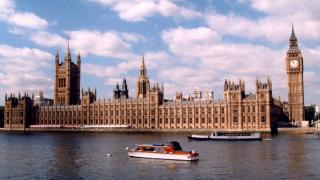
On 3 July, the All-Party Parliamentary Group on the United Nations (UN APPG) met to discuss the UK's relationship with the UN's Human Rights Council. With the UK standing for election to the Council later this year, participants discussed the UK's human rights record and engagement with the Council to date, as well as possible future priorities.
Baroness O'Neill, Chair of the Equality and Human Rights Commission (EHRC), a national human rights institution, discussed the UK's relationship with the Council from a domestic perspective. Explaining the EHRC's "arms length" relationship with the government, Baroness O'Neill highlighted the important role of independent bodies in reviewing the UK's human rights record. EHRC's work focusses on a number of major human rights issues, including children's rights, the rights of people with disabilities and the UK's obligations under the UN Convention Against Torture.
Sir Nigel Rodley, Chair of the UN's Human Rights Committee, which monitors the performance of states party to the International Covenant on Civil and Political Rights (ICCPR), presented an international perspective. He congratulated recent UK governments on their commitment to the promotion of human rights internationally. Citing the UK's participation in the inaugural session of the Council's peer review process, the Universal Periodic Review, Sir Nigel said that the UK set a good example in its engagement with the UN's human rights mechanisms. But he also drew attention to areas in which the UK could do more to improve its own record, for example by ratifying the ICCPR's individual complaints mechanism. The UK's domestic record, participants agreed, mattered greatly to its ability to challenge other states on theirs.
Questions from the floor covered a wide range of issues, including parliamentary oversight of the UK's international human rights obligations, allegations of the UK's involvement in torture and rendition, and the UK's standing on human rights issues in fora outside of the UN.






